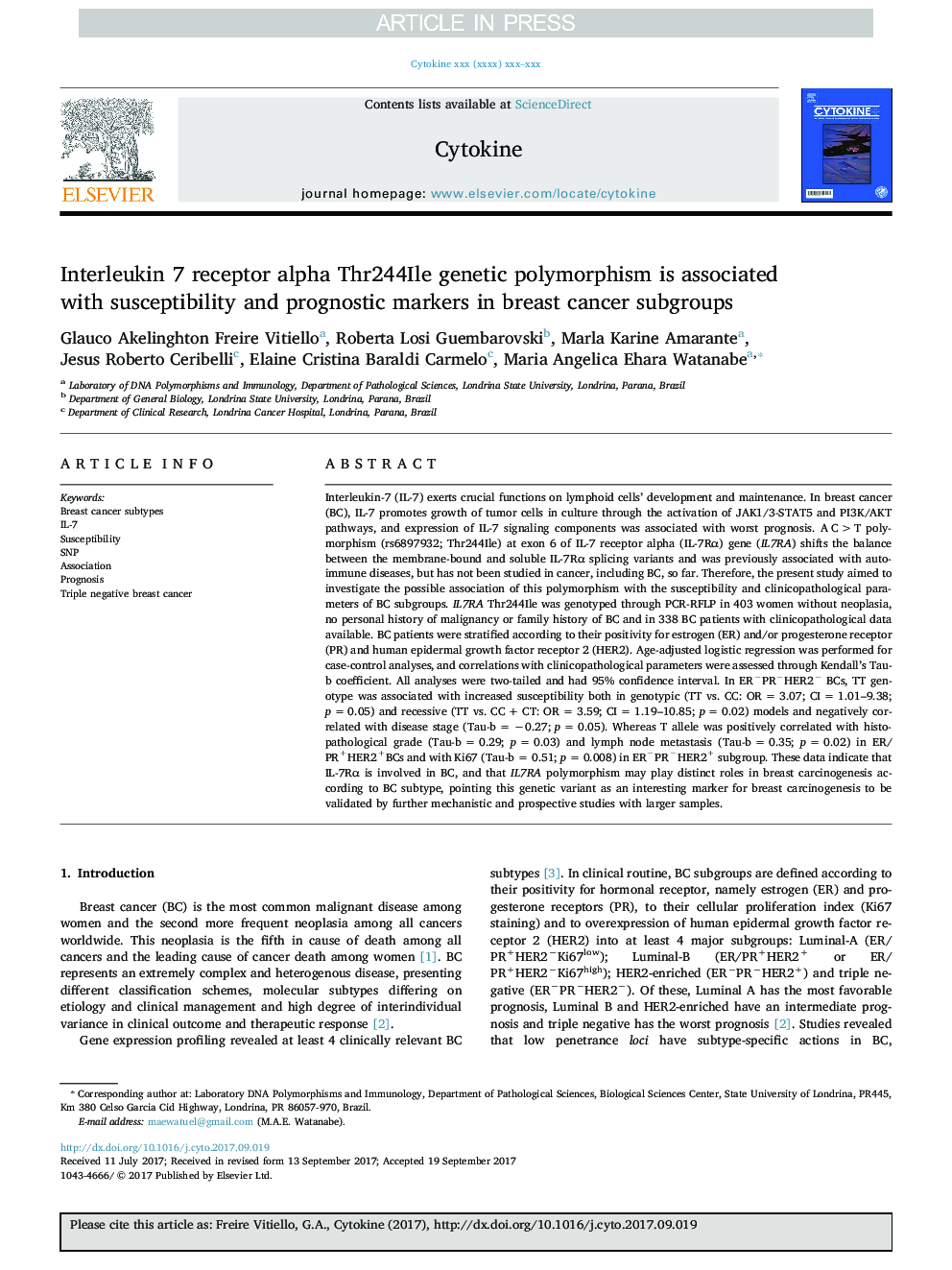| Article ID | Journal | Published Year | Pages | File Type |
|---|---|---|---|---|
| 8629228 | Cytokine | 2018 | 6 Pages |
Abstract
Interleukin-7 (IL-7) exerts crucial functions on lymphoid cells' development and maintenance. In breast cancer (BC), IL-7 promotes growth of tumor cells in culture through the activation of JAK1/3-STAT5 and PI3K/AKT pathways, and expression of IL-7 signaling components was associated with worst prognosis. A C>T polymorphism (rs6897932; Thr244Ile) at exon 6 of IL-7 receptor alpha (IL-7Rα) gene (IL7RA) shifts the balance between the membrane-bound and soluble IL-7Rα splicing variants and was previously associated with autoimmune diseases, but has not been studied in cancer, including BC, so far. Therefore, the present study aimed to investigate the possible association of this polymorphism with the susceptibility and clinicopathological parameters of BC subgroups. IL7RA Thr244Ile was genotyped through PCR-RFLP in 403 women without neoplasia, no personal history of malignancy or family history of BC and in 338 BC patients with clinicopathological data available. BC patients were stratified according to their positivity for estrogen (ER) and/or progesterone receptor (PR) and human epidermal growth factor receptor 2 (HER2). Age-adjusted logistic regression was performed for case-control analyses, and correlations with clinicopathological parameters were assessed through Kendall's Tau-b coefficient. All analyses were two-tailed and had 95% confidence interval. In ERâPRâHER2â BCs, TT genotype was associated with increased susceptibility both in genotypic (TT vs. CC: OR = 3.07; CI = 1.01-9.38; p = 0.05) and recessive (TT vs. CC + CT: OR = 3.59; CI = 1.19-10.85; p = 0.02) models and negatively correlated with disease stage (Tau-b = â0.27; p = 0.05). Whereas T allele was positively correlated with histopathological grade (Tau-b = 0.29; p = 0.03) and lymph node metastasis (Tau-b = 0.35; p = 0.02) in ER/PR+HER2+BCs and with Ki67 (Tau-b = 0.51; p = 0.008) in ERâPRâHER2+ subgroup. These data indicate that IL-7Rα is involved in BC, and that IL7RA polymorphism may play distinct roles in breast carcinogenesis according to BC subtype, pointing this genetic variant as an interesting marker for breast carcinogenesis to be validated by further mechanistic and prospective studies with larger samples.
Keywords
Related Topics
Life Sciences
Biochemistry, Genetics and Molecular Biology
Endocrinology
Authors
Glauco Akelinghton Freire Vitiello, Roberta Losi Guembarovski, Marla Karine Amarante, Jesus Roberto Ceribelli, Elaine Cristina Baraldi Carmelo, Maria Angelica Ehara Watanabe,
